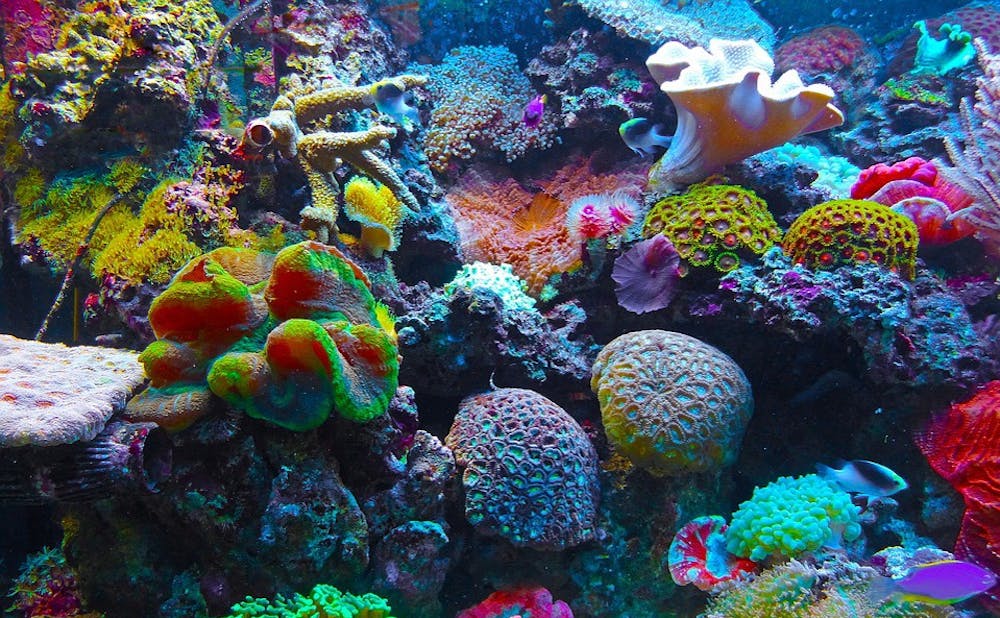New evidence from Duke environmental researchers points to the devastation coral reefs could face in the next few decades—which would affect human populations around the world.
Investigators mapped where rising sea temperatures and growing ocean acidification are contributing to coral bleaching and the decline of coral reefs. They also mapped which countries were the most dependent on coral reefs for the "ecosystem services" they provide—services such as feeding local communities, employing fishermen, protecting coasts from erosion and offering materials used in new medicine. According to the study, areas of Southeast Asia, Central and South America, Oceania and Eastern Africa are the most dependent on coral reefs and the most vulnerable to the ecosystems' decline.
Going forward, scientists and policy makers will need to ensure that coastal regions are aware of the growing issues and can successfully adapt, explained Linwood Pendleton, a senior scholar in the Nicholas Institute for Environmental Policy Solutions and first author of the study.
”Some scientists have held out hope that there would be reef areas that could escape the harm of climate change, but we find that most reefs will be affected by either warmer seas or more acidic oceans,” Pendleton said in a Duke Today release. “2016 has been one of the worst years in memory for coral bleaching. This fact is demonstrated by this year’s bleaching event that affected nearly all of the Great Barrier Reef.”
Pendleton noted that previous research had long established that rising carbon dioxide levels across the globe could contribute to ocean acidification and elevated sea temperatures, thus leading to the loss of coral. Until now, however, researchers had not mapped the true impact of coral reef decline on the communities dependent on them.
Using ocean acidification and temperature data, the group predicted where these environmental changes could contribute most significantly to coral loss. In the future, Pendleton and his colleagues said they hope to gather more localized data to confirm their findings and develop stronger models, he said.
The study included representatives from policy groups and other universities, displaying their aggregated results in an online visualization. According to the study, countries in Oceania and Southeast Asia will be among the earliest to face the impact of these changes.
Pendleton added that ultimately, the loss of coral reefs could be devastating on a global scale because coastal regions depend heavily on coral reefs for fishing revenue and environmental protection.
Pendleton noted that even people living far inland may have a cause for concern, since many popular tourist destinations across the globe depend on coral reefs. Beyond tourism, he said, the decline of coral reefs can also be considered a humanitarian issue, because their loss will have widespread economic and health consequences on the populations that depend on them.
Although other factors can contribute to coral reef loss, ocean acidification and rising temperatures are two consistent predictors of coral reef bleaching. Focusing on these two factors allowed the study’s message to become clearer, an important goal in today’s world of fake news stories and climate change denial, Pendleton explained.
“One of the challenges with our study was to try and make this as complicated as needed to do good science, but no more complicated than that because we didn’t want to lose the message about these two key environmental threats,” he said.
In light of the recent presidential election and shifting electoral demographics in Europe, Pendleton noted that environmental policy may have to take a more defensive tone rather than a preventative one.
“I think what we might see is a little bit of a pivot toward more science aimed at how you adapt and live with climate change,” he said. "So in all the work I've done with ocean acidification, everyone wants to say the first and best approach is to reduce the emission of carbon dioxide in the atmosphere. But when you live in a world where one election can change the course of climate policy, you really have to make sure you're understanding what we need to do to adapt and live in a warmer and higher carbon dioxide world.”
Get The Chronicle straight to your inbox
Sign up for our weekly newsletter. Cancel at any time.

